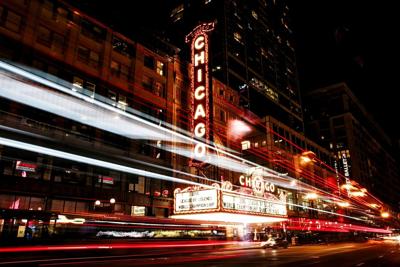Bally’s Corporation is feeling the heat, and not just from the roulette wheels. Fitch Ratings just downgraded the Rhode Island-based gaming operator’s credit rating from a ‘B’ to a ‘B-’, throwing some serious shade on the company’s ambitious $1.7 billion Chicago casino project. The downgrade points to Bally’s towering debt levels, potential stumbles in project execution, and a financial picture that’s starting to look a bit cloudy. As the company pushes forward with its flagship development in the Windy City, the winds may be turning against them.
It’s not just bricksand-mortar challenges weighing Bally’s down. The casino landscape is evolving fast, and the competition isn’t just across town, but online and global as well. The rapid rise of online crypto casinos has brought a fresh wave of tech-savvy gamblers who prefer instant access and digital wallets over valet parking and cocktail service. According to gambling expert Mark Hoover’s list of the top 10 crypto gambling sites, this gambling niche is surging in popularity, with tons of different games and fast transactions. Also, these blockchain-based gaming platforms are often lighter on regulation and tax obligations, creating a new layer of pressure for legacy casino operators already juggling complex physical developments.
Fitch reported that Bally’s EBITDAR leverage hit 7.0x in 2024 and is expected to climb to somewhere between 8.0x and 9.0x. That leap is mostly due to new debt issuance and lease-adjusted obligations tied to its Chicago dreams. The company has managed to pull in $940 million in private financing so far but still has its eyes on another $250 million, which it’s trying to secure through an IPO aimed specifically at minority and women investors. It’s a bold and inclusive strategy, but there’s one hitch: the Securities and Exchange Commission (SEC) hasn’t green-lit the offering yet.
While Bally’s does have $620 million in breathing room from its revolving credit facility and no major debt deadlines until 2028, Fitch warned that its liquidity is starting to look less like a pool and more like a puddle. That’s because the company continues to take on financial obligations that aren’t exactly pocket change. Meanwhile, the show must go on–Bally’s is deep into the construction of its permanent casino located at 777 W. Chicago Ave. Aiming for a grand opening in September 2026.
But even with the blueprints in motion, challenges loom large. Fitch highlighted several red flags: Chicago’s gaming market is already pretty packed, local tax rates are sky-high, and like any massive project, the new casino will face early growing pains before the slot machines start singing consistently. Bally’s isn’t even getting a confidence boost from its temporary Medinah Temple location, which brought in less than $8.8 million in February, its weakest month in over a year.
CEO Robeson Reeves admitted things aren’t exactly going according to plan. “The temporary Chicago casino returns remain below our expectations,” he said, “though we are hearing from customers that they are increasingly excited by what is starting to happen a few blocks northwest at the permanent site.” Optimism is one thing, but in this case, the spreadsheets are doing most of the talking.
To ease the financial squeeze, Bally’s is chasing a property tax break worth nearly $300 million over the next decade. The catch? It’s stalled in Chicago’s City Council Rules Committee, and it’s unclear when–or if–it will move forward. And if that weren’t enough drama, the company is now facing two lawsuits backed by conservative groups. These legal challenges target Bally’s minority-focused investment program, claiming it discriminates against white male investors.
Still, there may be a glimmer of hope. Fitch noted that if Bally’s can lock in full funding for the Chicago project and start bringing down its leverage ratios, an upgrade could be on the table. In the meantime, the company is weighing a sale-leaseback deal for its Twin River Casino. That move could generate $735 million in cold, hard cash–a potential life raft that could keep Bally’s from going bust while it places its next big bet.








(0) comments
Welcome to the discussion.
Log In
Keep it Clean. Please avoid obscene, vulgar, lewd, racist or sexually-oriented language.
PLEASE TURN OFF YOUR CAPS LOCK.
Don't Threaten. Threats of harming another person will not be tolerated.
Be Truthful. Don't knowingly lie about anyone or anything.
Be Nice. No racism, sexism or any sort of -ism that is degrading to another person.
Be Proactive. Use the 'Report' link on each comment to let us know of abusive posts.
Share with Us. We'd love to hear eyewitness accounts, the history behind an article.